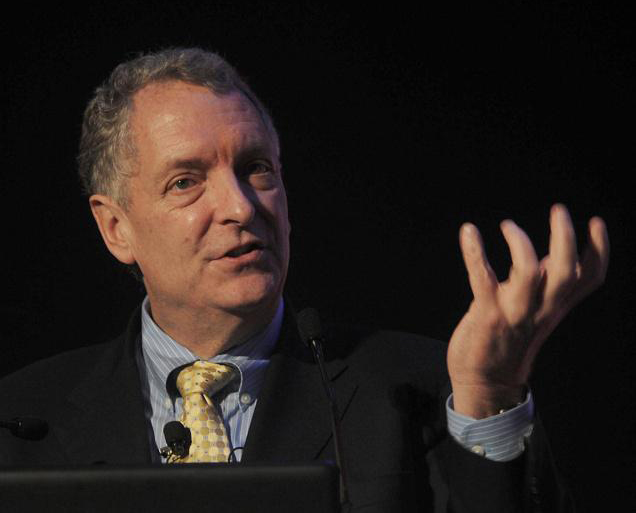Talent Management, Leadership and Culture, with Dave Ulrich

Overview
Talent Management, Leadership and Culture, with Dave Ulrich
How organizations build capabilities of talent, leadership, and culture (speed, learning, accountability, service, innovation, and collaboration) through leveraging human resources.
This seminar will help participants build organizations that accomplish desired results. This is often called strategy execution. The seminar is designed for both business leaders who are owners and primarily responsible for delivering results and for HR professionals who are architects to design and deliver effective organizations. The seminar will be divided into four modules.
Course Outline
Course Outline
Changing nature of competitive advantage.
This module will discuss major changes in business today (social, technological, economic, political, environmental, and demographic). As a result of these changes, organizations have to find new ways to compete, primarily through managing organization capabilities. We will help each participant audit the competitive landscape for their business and recognize the sources of competitive advantage. We will suggest that organization capability is comprised of talent, leadership, and culture. Competitors might be able to copy products, services, technology, and costs, but can’t copy organization.
Trends in talent
Talent Management is an HR organizational process designed to bring people into the organization (recruiting, sourcing, securing), to develop them when in the organization (training, career and succession management, performance management), and to retain the right talent. Many of us underestimate the importance of utilizing employee capabilities, and how minimal adjustments within a department can impact the company as a whole:
- In order for an organization to succeed and achieve results, the leaders must pay as much attention to their employees as they do to money.
- Employees are the building blocks of an organization. Talent management enables talented employees to fulfill the companies’ goals while effectively executing their strategy.
- Talent is a key ingredient to long-term success
Dave Ulrich will help you answer the following questions:
- How will investing in Talent Management have a direct impact on the success of your organization?
- How can you manage talent choices for c-suite executives, key company leaders, high potential employees, and all employees?
- How can you find and recruit the right employees?
- How can you identify your employee’s strengths and weaknesses?
- How can you ensure that your employees have the skills to do their work?
- How can you guarantee that your employees are committed to do their best?
With this session, you will be able to audit your current talent programs and build a Talent Management agenda in your organization.
Insights on culture
Individual talent and people matter, but collective culture and systems often matter more. Peter Drucker is attributed as saying, “culture eats strategy for breakfast.” Culture, one of an organization’s key capabilities, is a key executive challenge and outcome of HR work.
In this session, Dave Ulrich will answer some basic questions:
- Why culture change matters? We will build a business case for investing in culture change as a means of transformation.
- What do we mean by culture? The concept of culture has a host of definitions, terms, and concepts. We want to define culture in a way that delivers sustained value. This requires redefining culture from the outside in. An outside in perspective on culture starts with the firm brand and identity. When the firm has a strong external brand (identity or reputation), this external brand can and should become the internal culture. Dave Ulrich will offer HR professionals tools to recognize culture as brand and to help leadership teams gain unity around their desired culture.
- How do we institutionalize culture? There are four steps to make a desired culture real:
- Intellectual agenda: create a clear definition of the desired culture and communicate this culture repeatedly
- Behavioral agenda: turn the desired culture into specific employee actions and behaviors by engaging employees in the realization of the culture
- Process agenda: reenginner organization processes (e.g., technology, strategy, compensation, training, hiring, restructuring) to reinforce the culture
- Leadership brand: turn the culture into a set of expectations for leaders
Executives who manage culture and HR professionals who architect culture change work together to build the right culture that sustains change over time and enables transformation.
Participants will leave this session with the ability to better assess and improve their organization’s culture and how it relates to transformation. Dave Ulrich will offer specific actions to make culture change a reality.
Trends in leadership
No one questions the impact of leaders on organization success. But, building leadership throughout the organization remains an ongoing challenge. In this module, we will answer four questions about leadership that will help participants build leadership in their organizations and be better leaders themselves.
Question 1: Why. We will talk about why leadership impacts employee commitment, organization strategy execution, customer connection, and investor confidence. In particular, we will talk about the new thinking and research on a leadership capital index (new book out in fall, 2015) which enables investors and others to assess the quality of leadership. Like a credit ratings index (e.g., Moody’s, Standard & Poors), the leadership capital index will help key stakeholders more rigorously value leadership by assessing five personal traits and five systems that create good leadership.
Question 2: What. Thousands of studies and articles have been prepared on what makes an effective leader. We will distill this information into the elements of a leadership brand. Leadership brand means that leaders do the leadership basics (called the code) and that they do the differentiators which link their activities to customer expectations. We will help each participant determine what leadership skills are required for their company.
Question 3: How to build leadership. We will talk about six steps to building a leadership brand in the participant’s company. These steps will offer specific actions an investments participants can make to create leadership.
Question 4: How to be a better leader. We will review how to build a personal leadership agenda which turns a personal point of view about leadership into a personal brand statement. We will highlight the requirements to sustain personal change.
By answering these four questions, participants will be able to audit the quality of leadership in their organization and to prepare themselves to be better personal leaders.
About Dave Ulrich
About Dave Ulrich
 Dave Ulrich is the Rensis Likert Professor at the Ross School of Business, University of Michigan and a partner at the RBL Group (http://www.rbl.net) a consulting firm focused on helping organizations and leaders deliver value. He studies how organizations build capabilities of leadership, speed, learning, accountability, and talent through leveraging human resources. He has helped generate award winning data bases that assess alignment between strategies, organization capabilities, HR practices, HR competencies, and customer and investor results.
Dave Ulrich is the Rensis Likert Professor at the Ross School of Business, University of Michigan and a partner at the RBL Group (http://www.rbl.net) a consulting firm focused on helping organizations and leaders deliver value. He studies how organizations build capabilities of leadership, speed, learning, accountability, and talent through leveraging human resources. He has helped generate award winning data bases that assess alignment between strategies, organization capabilities, HR practices, HR competencies, and customer and investor results.
He has published over 200 articles and book chapters and over 25 books. He edited Human Resource Management 1990-1999, served on editorial board of 4 Journals, on the Board of Directors for Herman Miller, and Board of Trustees at Southern Virginia University, and is a Fellow in the National Academy of Human Resources.
Benefits
How Will You Benefit?
This seminar will focus on the benefits of improved talent, leadership and culture.
Dave Ulrich will provide you with the tools, skills and knowledge needed to develop successful talent management strategies, leadership and culture, which will drive your business to success.
Dave Ulrich will clearly illustrate how working efficiently with talent, leadership and culture will:
- Help implement business strategy.
- Deliver financial results.
- Better serve customers.
- Serve internal and external stakeholders.
Who Should Attend
Who Should Attend?
This seminar is highly effective for all business professionals from different departments dealing with employees on a daily basis: CHROs, Senior HR Leaders, Line Managers, HR Business Partners or other HR Professionals tasked with talent and transformation. Ideally, organizations will send teams of business leaders and HR professionals who can collaborate to build the right organization for sustained success.
Workshop Details
Workshop Details
| Date | Venue | Timing |
| Wednesday, 22nd April 2015 | The Address Dubai Marina, Dubai, UAE | 9:00am to 5:00pm |
Pricing
| Ticket (per Delegate) | Early Bird (Expires 22nd March 2015) | Standard Pricing |
| Single Seating Ticket | 2675 AED / 728.5 USD | 3500 AED / 953 USD |
| 3+ Seating (Up to 7 Seats) | 2675 AED / 728.5 USD | 3000 AED / 817 USD |
| 8+ Seating | 2675 AED / 728.5 USD | 2750 AED / 749 USD |
VIP Tickets
|
2675 AED / 728.5 USD | 5000 AED / 1362 USD |

